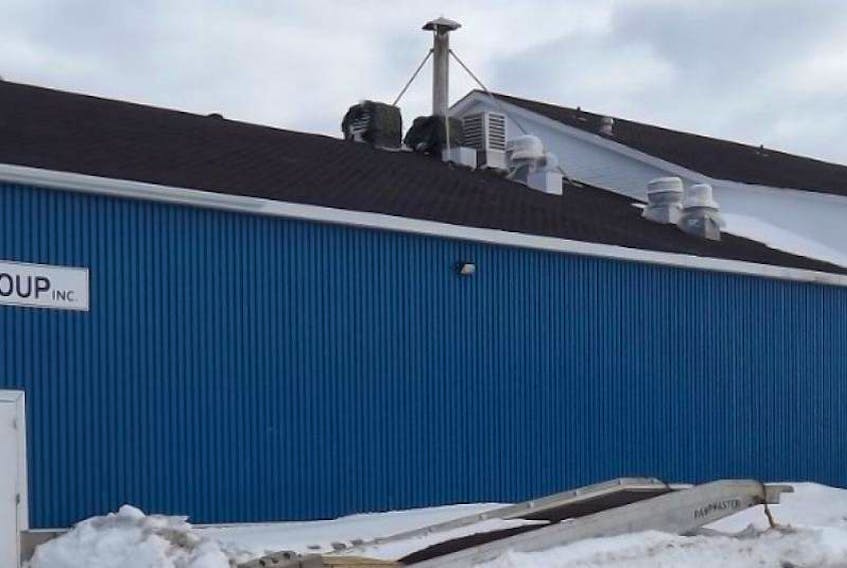BLACK DUCK COVE/ANCHOR POINT, N.L. — Money earmarked by the provincial government may not be enough to help out struggling plant workers.
On July 4, the province announced it had set aside $2.5 million for plant workers negatively impacted by a slump from cuts to shrimp, crab and cod.
This was in addition to $500,000 for other supports available in response to communities and individuals impacted by fish plant closures.
“We have programs and services across multiple departments designed to support displaced workers in finding new employment and support to retain or upgrade skills,” said Fisheries and Land Resources Minister Gerry Byrne in a press release.
On the Great Northern Peninsula, the shrimp plants remained open in 2018 but hours of work have been harder to come by.
So some may stand to benefit from this $2.5 million program.
But is it enough?
Eva Applin of St. Barbe has been a plant worker for over 20 years; 15 of those years she worked at Gulf Shrimp Ltd in Black Duck Cove.
Applin believes more needs to be done to assist individuals like her, who are struggling to get enough hours and weeks for employment insurance (EI) to last through the winter.
“It’s only a band-aid,” she told the Northern Pen.
According to her, of the approximately 70 workers in Black Duck Cove, many still need 100 or even 200 hours in order to apply for EI.
“You’re looking at some weeks 15 hours, one week was even four hours,” she said.
She believes the federal government needs to step up.
“I’m very pleased that the Newfoundland government is acknowledging the problem but it’s the federal government that needs to step up and know they got a province of individuals here who are contributing to the economy, same as everybody else,” said Applin.
She calls the lack of response from the federal government “disrespectful”.
She believes the federal government should supplement the wages of plant workers.
“They should be giving the companies money to give us more money per hour,” said Applin. “Either more money per hour or, when we’re finished, you take everything you got, divide it by the number weeks and you make it worth your while. Have a base rate that you can live on.”
Denise Mitchelmore of Pines Cove works at the Anchor Point plant. She has been a plant worker for nearly 30 years.
She says the plant is doing well compared to many others. Some workers there have close to 300 hours.
But it’s going to be hard to get to the 420 hours to qualify for EI.
Usually, she says, they work eight weeks processing catches from the Gulf fishing area. This year, they’ve only got six weeks.
And, while they used to get four to six weeks from the quota in area six, cut 25 per cent in 2018 after a 68 per cent cut in 2017, Mitchelmore says the plant’s boats will only have one trip this year.
“It’s not looking very well for the people in our plant,” she told the Northern Pen.
Mitchelmore also believes the federal government should help them out and provide a work program.
“They took our quotas away so we can’t make a living, so they should be looking at how they can help us,” she said. “And if it’s a program to help us make it through the year, don’t wait until Christmas when everyone is down and out. If the plants are all closed in September, that’s the time you need to look at how many people needs work.”
The province’s Minister of Fisheries and Land Resources is also calling on the federal government to assist plant workers across the province.
“We’re still calling on and expecting the federal government to come forward with an assistance package,” Gerry Byrne told the Northern Pen. “We all need to recognize that the current issues in the fishery are around resource shortages, quota cuts. And, so far, the manager of those quotas - the federal government - has not come forward with a fisheries response plan.”
Byrne says no other Eastern Canadian province has experienced the quota cuts of Newfoundland and Labrador.
According to him, Nova Scotia, Prince Edward Island, New Brunswick and Quebec have been able to rely on high catch rates and prices in the lobster industry.
Meanwhile, snow crab stocks have remained healthy with record high prices. He says their groundfish and pelagic fisheries are also very healthy.
Byrne contrasts the situation in Newfoundland and Labrador.
“While in Newfoundland and Labrador, our shrimp and our crab quotas have been cut dramatically,” he said. “We’ve seen significant quota cuts in our pelagics, such as capelin, and our groundfish, particularly our cod, has not grown anywhere near what was hoped or anticipated.
“We’re experiencing these significant challenges from allocation cuts, yet we really have not seen the federal government step up to the plate yet and that’s very frustrating for us all.”









